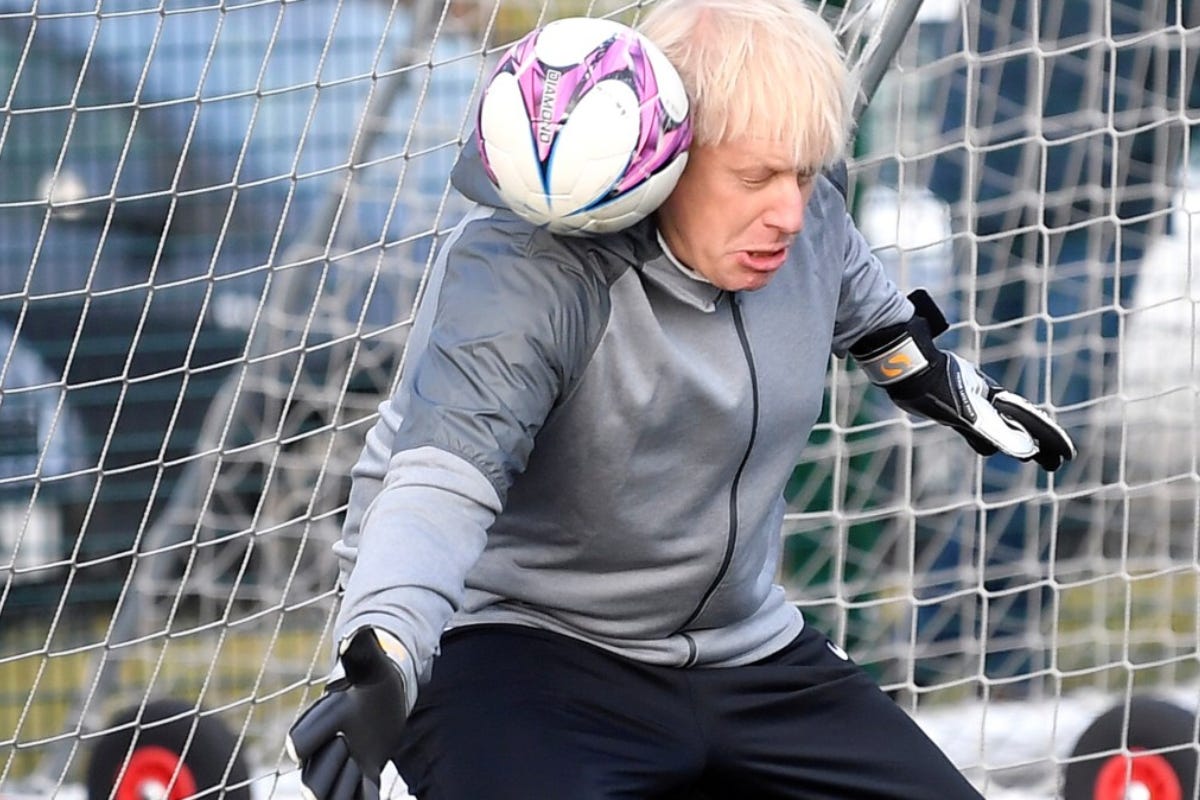Up the reds!... Or was it the blues?
Why politicians feel the need to aggrandise their love of the beautiful game, when it so often provides moments of debilitating cringe-worthiness.
Day one of the general election campaign took the Prime Minister to a brewery in Barry, South Wales. Once a suitable assemblage of workers and local business owners had been rounded up, they were squeezed around an uncomfortably small table and the cameras started rolling.
After the PM had reminded his Welsh acquaintances how much he had done for them during the pandemic, he could move on to a subject much closer to his heart.
“So, are you looking forward to all the football?” Sunak asked, astutely referencing this summer’s UEFA European Championship. Except Wales haven’t qualified for the Euros. An awkward, icy silence gripped the room.
The excruciating tension was broken by a quip about Wales’ absence, leaving a red-faced Sunak to try and laugh off his first gaffe of the campaign. Pure Alan Partridge.
This moment joins two spectacular recent examples of politicians getting caught out pretending to care or know more about football than they actually do:
David Cameron: Professed his love for West Ham in a speech, before realising that he actually supported Aston Villa – claret and blue, easy mistake to make.
Matt Hancock: Confused Manchester United and Hogwarts when referring to the England player campaigning for free school meals, Daniel Rashford.
These aren’t the first examples of politicians exaggerating or even fabricating an interest in football for political purposes, and they certainly won’t be the last.
Keir Starmer kicked off his campaign in Gillingham FC’s Priestfield Stadium. Along with “pebble-dash semi” and “my father was a toolmaker”, “my beloved Arsenal” is one of Starmer’s favourite focus group-approved phrases.
Even his role model, Tony Blair, was keen to let the world know about his love for football despite his questionable understanding of the game – a case and point being his enthusiasm to move Wimbledon FC to Belfast in the late ’90s.
The mask slips
So why are politicians so desperate to posture as football fans, even if they are so often caught out?
The game and its icons hold a universal and enduring significance in British culture, occupying a quasi-religious position. Its level of popularity attracts salivating politicians like a moth to a lamp, or Boris Johnson to anyone who isn’t his wife.
A good PM must understand the needs and perspectives of underserved communities both domestically and internationally.
By wrapping themselves in the iconography of the working class, they not only attempt to mask their own elitist credentials, but also the elitism of British society.
The impact of elitism in politics is plain to see. Of the 57 British PMs, 20 went to Eton and 44 went to Oxbridge. And in terms of access to these elite universities, a 2020 study found that 8 elite schools (6 private, 2 state) sent more students to Oxbridge than nearly 3,000 other UK state schools combined.
Of course, a keen interest in football is not a prerequisite for being an effective PM. A good PM must understand the needs and perspectives of underserved communities both domestically and internationally, and then tactfully pass legislation to create meaningful change. Whether or not they have nuanced opinion on the tactical prowess of Gareth Southgate is of no relevance.
But it is more a question of authenticity. Are our politicians who they say they are? It’s all well and good posing as a working class hero, but will they actually implement policies that make a material difference to people’s lives?
As long as football retains its cultural significance, it will be exploited by politicians looking for cheap point-scoring. So prepare yourself for many more footballing cock-ups in the future – especially from those without any working class friends.




